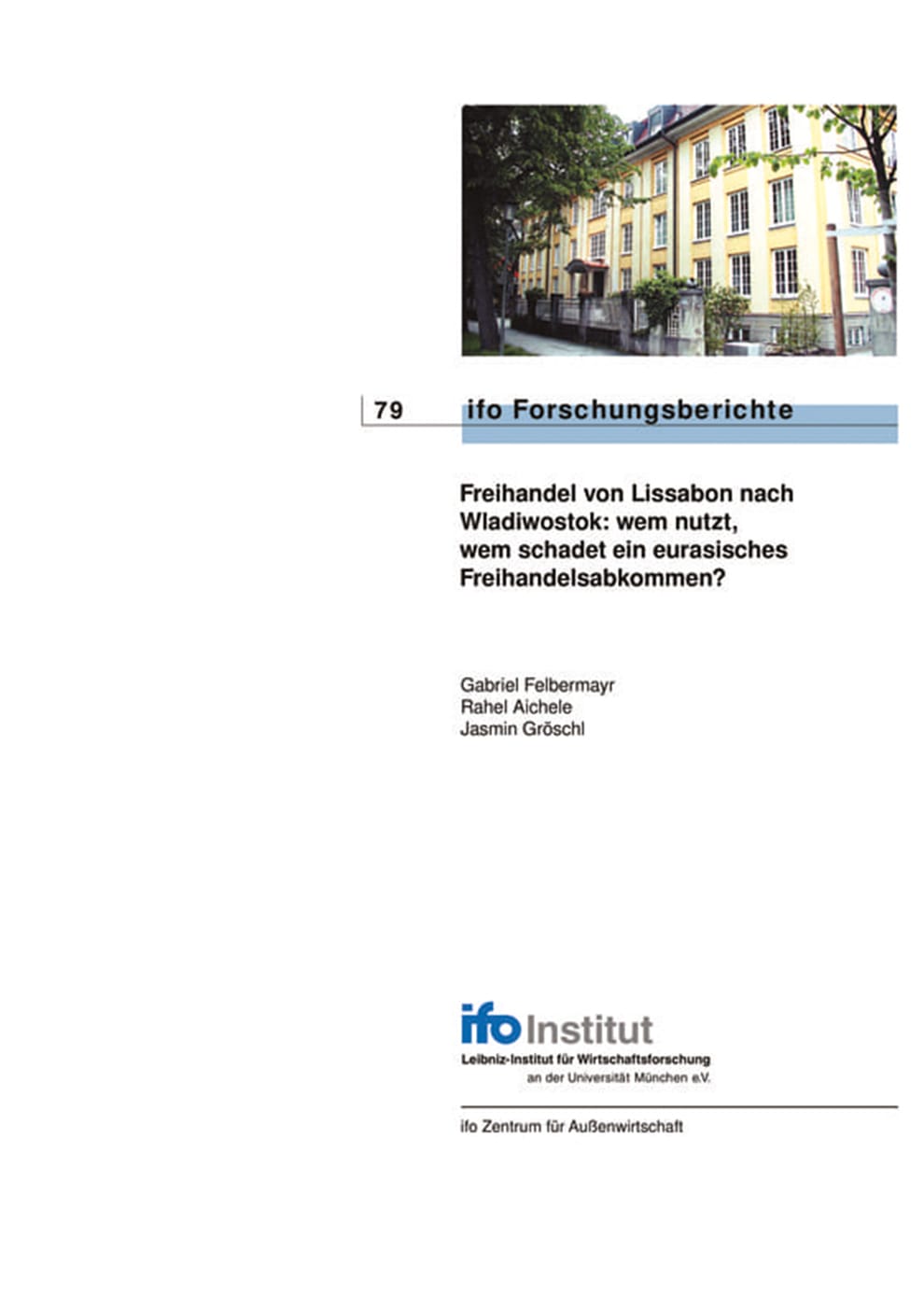Free Trade from Lisbon to Vladivostok: Who gains, who loses from a Eurasian Trade Agreement?
ifo Institut, München, 2017
ifo Forschungsberichte / 79

Trade relations between the EU and Russia are currently severely impacted by Western sanctions against Russia and mutual embargo measures. This, however, has not led to a visible change in the geostrategic orientation of Russia. An adjustment of interests might perhaps require less punishment, but rather the prospect of closer economic cooperation. Both, the EU and the successor states of the Soviet Union should have a strong interest in a free trade area “from Lisbon to Vladivostok” because the structures of their comparative advantages are highly complementary. For Russia, a deep agreement between the EU and the Eurasian Economic Community could lead to an increase in real per capita income of 3%; for Germany this would lead to an increase by 0.2%. This translates into an income increase of 235 Euros per capita and year for Russia and 91 Euros for Germany. Hence, Russia and the other countries of the former Soviet Union could be interesting partners for a deepened economic cooperation with the EU. The EU should have a strong interest in stable economic development in its immediate neighbourhood. In addition, the complementary specialization structure of these countries promises substantial economic benefits for the EU as well.